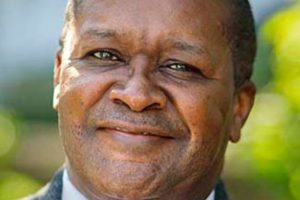
Abstract: The presentation considers the reversibility of metal electro-crystallization processes in liquids and porous-media electrolytes. A specific goal is to resolve long-standing but fundamentally misunderstood physico-chemical processes at electrochemical interfaces that favor out-of-plane growth of metal electrodeposits. Such growth produces non-uniform, rough, low-density electrodeposit morphologies, often with underlying crystal structures different from those observed in the bulk metal. The search for solutions has re-emerged in recent years as a priority research area because poor control of metal electroreduction during recharge is a barrier to cost-effective, safe energy storage in batteries, including in so-called fast-charging scenarios.
Beginning with results from studies performed over the last decade, the presentation will firstly explore how and under what conditions planar, reversible nucleation and growth of crystalline metal structures can be achieved inside a closed battery cell. Interfacial products created by spontaneous, parasitic reactions will also be discussed with the aim of understanding the competitive electroreduction reaction kinetics responsible for their growth, as well as for motivating the role the new material phases (i.e., interphases) formed by these reactions play in regulating electrodeposit morphology. Finally, the presentation will consider general stability limits for metal electrodeposition processes in liquid and structured electrolyte media from multiple perspectives and on that basis explore promising electrolyte and electrode design concepts for slow and fast-charging batteries.
Lynden Archer is the Joseph Silbert Dean of the College of Engineering and the James A Friend Family Distinguished Professor of Chemical and Biomolecular Engineering. His research focuses on transport properties of polymers and polymer-nanoparticle hybrid materials, and their applications for electrochemical energy storage in batteries. Archer received his Ph.D. in chemical engineering from Stanford University in 1993 and was a Postdoctoral Member of the Technical Staff at AT&T Bell Laboratories in 1994. He is a member of the National Academy of Engineering (NAE) and fellow of the American Physical Society (APS) and Societ of Rheology (SOR). His research contributions have been recognized with various awards, including the AICHE Nanoscale Science and Engineering Forum award, the National Science Foundation award for Special Creativity, a NSF Distinguished Lectureship in Mathematical & Physical Sciences, the American Institute of Chemical Engineer’s MAC Centeniell Engineer award, and the Thompson-Reuters World’s Most Influential Scientific Minds in Materials Science. At Cornell, he has been recognized with the James & Mary Tien Excellence in Teaching Award and thrice with the Merrill Presidential award as the most influential member of the Cornell faculty selected by a Merrill Presidential Scholar awardee. He previously served as Director of the Smith School of Chemical and Bimolecular Engineering at Cornell University from 2010 to 2016 and Deputy Editor of Science Advances from 2017-2021.